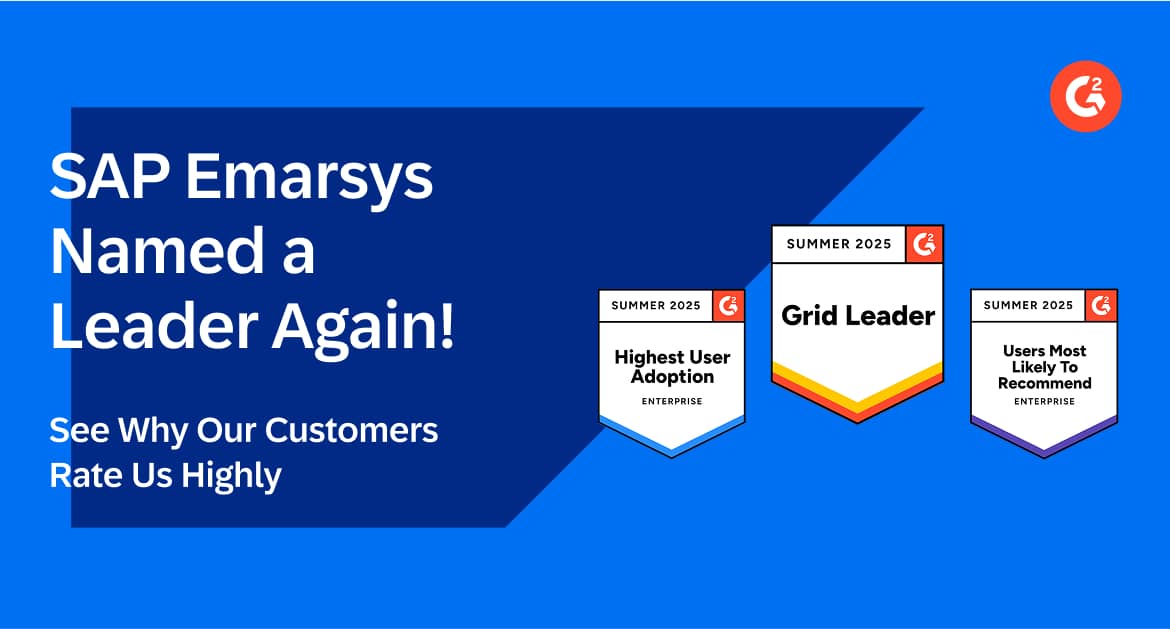AI is actively transforming how we engage with customers. But what is it, exactly? And how can we harness its power?
AI in customer engagement refers to the use of artificial intelligence technologies, such as machine learning and predictive analytics, to enhance and personalize interactions with customers and prospects. It plays an increasingly important role for modern business by automating routine tasks, providing real-time insights, and delivering 1:1 experiences — increasing customer loyalty and satisfaction.
Staying competitive today requires adapting to new changes and trends in AI-driven customer engagement. Businesses are integrating tools such as chatbots, predictive analytics, and AI-powered recommendation engines to anticipate customer needs. These tools are giving companies the ability to deliver the personalized experiences customers have come to expect. AI can also help with optimizing operations, and providing a deeper understanding of customer behavior.
Embracing AI and the power it offers enables businesses to maintain a competitive edge and forge enduring customer relationships.
AI Personalization
AI personalization means using artificial intelligence (AI) to craft and customize content, experiences, or recommendations for users, prospects, or customers. To accomplish this personalization, an AI engine analyzes vast amounts of data, such as user behavior, preferences, web traffic, and buying patterns to provide personalized and relevant content and product recommendations. AI personalization gives customers an experience that is tailored and enhances their satisfaction while also improving engagement and conversion rates.
Understanding customer preferences through data analysis
Understanding customer preferences through data analysis is at the core of AI personalization. Your business has a treasure trove of customer information… but how effectively are you using it? By harnessing the power of AI, businesses can analyze this information and gain valuable insights into behaviors, purchase histories, and browsing patterns.
Once this information is gathered, brands can deliver tailored product recommendations, personalized shopping experiences, and targeted marketing campaigns that resonate with customers on an individual level.
Tailoring product recommendations and content
Marketers have been trying to guess which products may interest customers since the earliest days of advertising, but with AI, brands can sift through vast amounts of data and gain insights into individual consumer preferences and behaviors like never before.
With this, businesses can be more proactive in anticipating customers’ needs and curate unique shopping experiences for them, offering the right products and content at the right time in their lifecycle. Whether it’s suggesting complementary items based on past purchases or showcasing personalized promotions, AI-driven product recommendation and content boosts conversion rates and creates lasting customer relationships.
Enhancing customer experience and satisfaction
It’s no longer enough to simply carry the products your customer wants. What sets brands apart is the complete experience they can provide to their customers..
The best experiences are immersive and tailored. From personalized product recommendations to dynamic website interfaces, using a customer’s unique preferences to create relevant content will make them feel seen and understood by the brand. The result — better customer experiences and satisfaction.
This kind of personalized attention generates customer loyalty, higher customer lifetime value, and ultimately, solidifies your brand as a trusted provider in a competitive marketplace.
AI-powered Customer Support
One way AI enhances the customer experience is through automated chatbots and virtual assistants that work in conjunction with your contact center. These intelligent systems provide a seamless and round-the-clock customer service experience, offering a fast and precise issue resolution.
Today’s AI-driven chatbots can understand and respond to customer inquiries with remarkable accuracy, whether it’s answering questions about products, assisting with order tracking, or resolving complaints. No more waiting for an agent to be online: this 24/7 availability not only enhances customer satisfaction by providing instant assistance but also significantly reduces the workload on human support agents at your contact center. This frees them up to focus on more complex and specialized tasks.
Automated chatbots and virtual assistants
Gone are the days of frustrating chatbots that failed to understand even the simplest of questions. Virtual assistants powered by AI can guide users through their shopping journey, helping them find the right products, and even process orders seamlessly. They continually learn from customer interactions and become increasingly adept at understanding individual preferences.
Quick and accurate issue resolution
Quickly responding to customer queries and concerns with precision is one of the hallmarks of great customer service. Today’s AI can discern the nuances of customer requests, provide relevant information, and even troubleshoot problems.
24/7 customer service availability
One of the main reasons customers don’t complete a purchase is due to a lack of information.
They want to ask about size, or maybe about shipping speed, but have no one to turn to for resolution. When faced with confusion, they’ll abandon cart, or maybe not even put the item in the cart to begin with. This can be mitigated with the 24/7 customer service availability that an AI-driven chatbot or virtual assistant can provide.
Serving in conjunction with your contact center, not only can virtual assistants and chatbots provide round-the-clock assistance but also deliver it with remarkable consistency and accuracy, making for a seamless shopping experience.
Predictive Analytics
At the forefront of the AI revolution is predictive analytics. This technology empowers businesses to anticipate customer needs and behaviors based on customer data, allowing for proactive outreach and personalized offers that can significantly enhance customer loyalty and retention.
Anticipating customer needs and behavior
Predictive analytics leverages the power of AI to analyze customer data about prior behavior, browsing history, and more. It goes beyond simply understanding past behaviors; it predicts future actions based on historical data patterns. This allows brands to anticipate what a customer might be looking for. It can also predict patterns of purchasing and anticipate when a customer might need to replenish their favorite item, grab a seasonal upgrade, or benefit from a complementary product.
Proactive outreach and personalized offers
One way predictive analytics benefits marketers is in its ability to enable proactive outreach. Rather than wait for customers to seek out products or services, you can take the initiative. Imagine a customer’s delight upon receiving an email with a curated selection of products perfectly aligned with their preferences. This approach not only saves customers time but also enhances their shopping experience and their loyalty to your brand.
Increasing customer loyalty and retention
Which brings us to the power of predictive analytics in aiding the nurturing of customer loyalty. Whether it’s offering exclusive pre-sale previews, specialized rewards, or anticipating when a customer will need a refill on a product they love, the insights gleaned from predictive analytics will help boost customer loyalty and retention.
Enhanced Customer Journey
Generative AI, or AI that produces new content fuels personalized marketing campaigns that can make it easier to deliver complete 1:1 omnichannel journeys at scale. Read on for how marketing is elevated and the perception of your brand enhanced when you introduce AI into your marketing mix.
Seamless omnichannel experience
Marketing today requires meeting customers where they are. It spans websites, mobile apps, social media, and, depending on your business model, your physical stores. AI bridges the gap between these channels, ensuring that customers enjoy a consistent and cohesive journey. For instance, a customer who browses a product on a mobile app should see tailored recommendations for similar items when visiting the website. This level of continuity and personalization across channels is achieved through generative AI’s ability to integrate data from multiple sources, creating a unified shopping experience.
AI-driven marketing campaigns
As we’ve mentioned in this post, AI can analyze customer data to uncover insights about preferences, behaviors, and even the best times to engage with each customer. This unified data can arm businesses with the tools they need to craft targeted marketing campaigns that resonate on a personal level. Whether it’s sending personalized emails or displaying tailored ads on social media, generative AI ensures that marketing efforts are relevant and effective.
Improved customer interactions and brand perception
Incorporating AI-driven marketing benefits both customers and businesses. Customers can have the experience of receiving tailored communications on their preferred channels, making their shopping journey meaningful and fun, increasing customer satisfaction. Businesses benefit from boosting sales and fostering customer loyalty.
Ethical Considerations with AI Technology
If you’ve read about the rise of AI, you’ve no doubt also been hearing about the ethical considerations involved with it. No discussion of the power of AI in customer engagement would be complete without also touching on issues such as the importance of privacy, data security, transparency, and fairness in AI interactions.
Privacy and data security concerns
Sure, the benefits of AI in customer engagement seem great, but what about customer data privacy? While AI thrives on data, consumers rightfully expect their personal information to be treated with care. To foster trust, brands must prioritize robust privacy measures and data security.
Customers will give their information to companies they trust, so it is important to garner zero- and first-party data with transparent data collection practices, stringent data encryption. A commitment to data minimization is also key. This means collecting only what’s necessary for personalization without being intrusive. Giving users clear and easily accessible privacy policies and consent options is crucial. Striking this balance between personalization and privacy is essential to building and maintaining trust with customers in the age of AI.
Transparency in AI-powered interactions
Transparency is the cornerstone of building trust between businesses and customers. When AI algorithms are at work—be it in chatbots, product recommendations, or customer support—the best practice is to let users know. Customers should be aware that they are interacting with AI. This transparency not only fosters trust but also empowers users to make informed choices. This technology feels new to many consumers, and as you incorporate it into your marketing mix, you can increase customer satisfaction while demystifying the technology that drives personalization.
Emarsys and AI Customer Engagement
AI is changing and will continue to change the way we work. This is an exciting development which lets consumers see more of the products and services they want in a way that feels meaningful to them. It also helps brands connect personally with customers and provide them with unique, tailored experiences.
The Emarsys Customer Engagement solution offers AI-driven predictive analytics and a personalization engine to help marketers stand head and shoulders above the competition. See how AI can empower your marketing team to deliver more personalized customer engagement by watching a demo.












